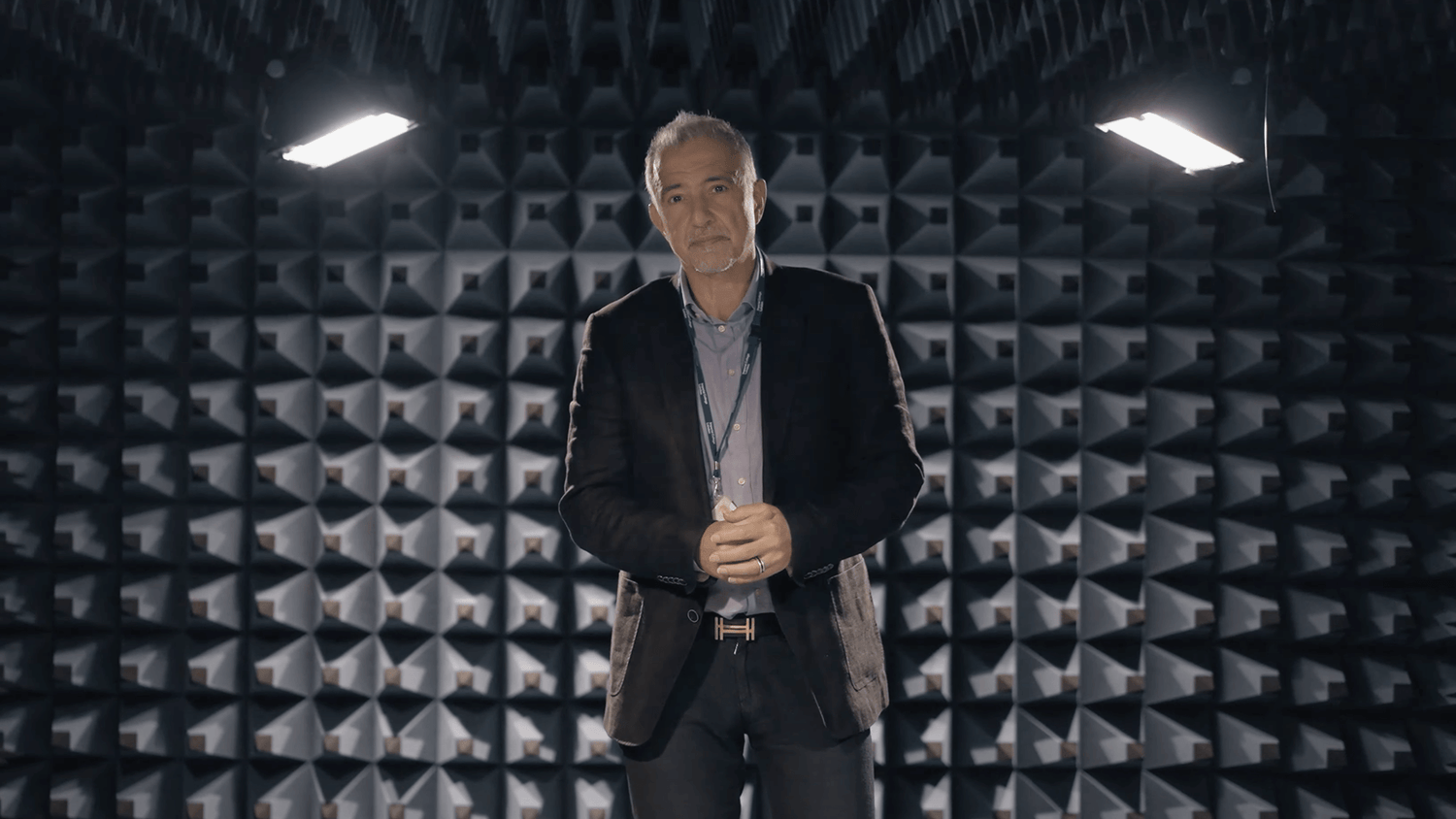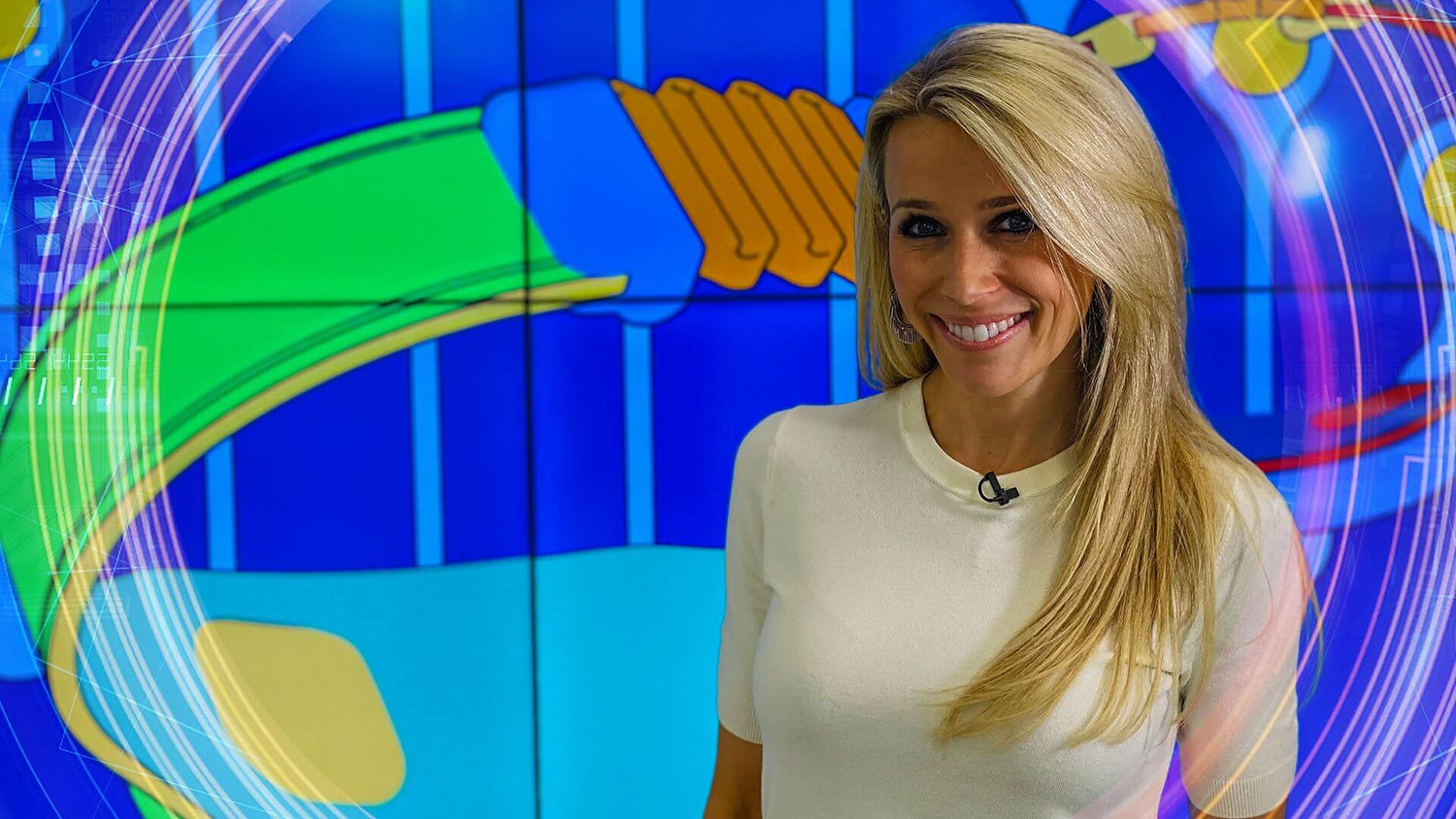DnaNudge CEO and co-founder Regius (Royal) Professor Christofer Toumazou has been announced as a laureate of the UNESCO-Equatorial Guinea International Prize for Research in the Life Science – the first UK winner.
Professor Toumazou has been recognised by a distinguished international jury panel for his innovations in bio-inspired technology and personalised medicine that have revolutionised healthcare and pushed the boundaries of biomedical engineering.
His work has culminated in the DnaNudge technology that is now providing world-first consumer genetics services and lab-free, rapid point-of-care diagnostics for COVID-19 and other viruses.
The honour was conferred upon Professor Toumazou at a special prize-giving ceremony at UNESCO’s headquarters in Paris on 14 March 2022, by the President of the Republic of Equatorial Guinea His Excellency Obiang Nguema Mbasogo and Audrey Azoulay, the Director General of UNESCO.
Commenting on his honour, Regius Professor Chris Toumazou FRS, FREng, FMedSci said: “I am deeply honoured and humbled to be named the first ever UK winner of the UNESCO-Equatorial Guinea International Prize for Research in the Life Sciences.
“My life’s work has been dedicated to democratising healthcare and bringing the economies of scale of the semiconductor industry to diagnostics and treatment, particularly in the areas of early detection, diagnostics and prevention. The vision that drives my research is that one day, healthcare will be truly personalised, and that health professionals everywhere will look not just at your medical history, but also your medical future.
“I would like to thank the people I have worked with over the years for their support and collaboration, and those who co-founded DnaNudge, Dr Thaksin Shinawatra and Dr Maria Karvela, to make it a reality for global health. I extend my heartfelt thanks to the UNESCO-Equatorial Guinea International Prize jury for this incredible honour, which I will devote to continuing to develop technology solutions to our biggest global health challenges – from lifestyle-related disease epidemics to viral pandemics.”
The prestigious UNESCO-Equatorial Guinea International Prize rewards significant efforts of individuals or institutions through scientific research towards improving the quality of human life and is awarded annually to a maximum of three laureates.
The Prize is funded by the Republic of Equatorial Guinea, with a monetary award of USD 350,000 divided equally among laureates to help further their research. The Prize was established by UNESCO’s Executive Board in 2012, to support the achievement 2030 Agenda for Sustainable Development as well as UNESCO’s global priorities to encourage research, enhance collaboration amongst researchers and reinforce networks of centres of excellence in the life sciences.
Sir Richard Sykes, DnaNudge Chairman said: “Through Chris’s innovation and vision, DnaNudge is a world-class technology platform improving genetic testing services in both the medical diagnostics sector and the consumer arena. This technology knows no limits and will continue to help drive personalised medicine forward. I cannot think of a better recipient for this prestigious award.”
Dr Thaksin Shinawatra, one of the co-founders of DnaNudge, said: “I am delighted that UNESCO has recognised Chris’s research that led to the creation of DnaNudge. I am extremely proud to have played a part in the development of this important technology and offer business insight that enabled us to bring it to market and to then adapt it to help fight the global COVID-19 pandemic. I am looking forward to continuing to work with Chris and the team as we continue to tackle the important field of personalised medicine.”
Professor Toumazou is a Regius Professor of Engineering, Chair in Biomedical Circuit Design, Director of the Centre for Bio-Inspired Technology, and Founder and Chief Scientist for the Institute of Biomedical Engineering at Imperial College London.
The realisation of Professor Toumazou’s work is a complete Lab-in-a-Cartridge technology that delivers consumer genetics services to identify genetic risk factors and “nudge” everyday shopping behaviour to improve public health. The DnaNudge service analyses and maps users’ genetic profile to key nutrition-related health traits such as obesity, diabetes, hypertension and cholesterol, enabling customers to be guided by their DNA plus lifestyle towards healthier eating.
The platform was successfully adapted into a transformative, lab-free RT-PCR COVID-19 test (“CovidNudge”), which returns results in just over an hour and is now in use in UK hospitals and healthcare settings worldwide. CovidNudge offers the ability to test for FluA, FluB and respiratory syncytial virus (RSV) on the same testing cartridge – a major advantage as the SARS-CoV-2 virus mutates and multiple variants need to be accurately screened for globally.
Professor Chris Toumazou holds the 2014 European Patent Office European Inventor Award, the Royal Society Gabor Medal and the prestigious IET Faraday Medal for his pioneering work in the field of microchips for healthcare and the co-invention of semiconductor genetics. In 2020, Professor Toumazou was named as a recipient of the President's Special Award for Pandemic Service by the Royal Academy of Engineering, honouring his exceptional engineering achievement in developing CovidNudge.
Notes to editors
DnaNudge is the developer of the world’s first service to use consumers’ own DNA plus lifestyle factors to nudge people towards healthier choices while shopping. The DnaNudge service analyses and maps users’ genetic profile to key nutrition-related health traits such as obesity, diabetes, hypertension and cholesterol, enabling customers to be guided by their DNA towards healthier eating. The service has been Professor Chris Toumazou FRS and published geneticist Dr Maria Karvela.
This ground-breaking in-store DNA testing service created to address an epidemic – obesity and Type 2 diabetes – has been successfully adapted for the fight against a pandemic, with the development of the rapid, lab-free CovidNudge RT-PCR test. CovidNudge can accurately detect COVID-19 and other viruses in just over an hour, without the need for a laboratory, and is now in use in healthcare settings around the world. In 2021, DnaNudge was named as the winner of the Royal Academy of Engineering’s MacRobert Award – the UK’s longest-running and most prestigious prize for engineering innovation.
Further information about Professor Chris Toumazou:
Professor Toumazou is also the co-inventor of DNA Electronics (DNAe). With DNA Electronics, Professor Toumazou has pioneered rapid near-patient live diagnostics. His breakthrough silicon chip for DNA detection has transformed how clinicians detect and treat conditions – from cancer to bacterial and viral illness. His technology delivers fast, accurate, and low-cost diagnosis of antimicrobial resistance, enabling early intervention crucial to preventing death from serious blood infections leading to sepsis.
Throughout his career, Professor Toumazou’s work has been distinguished for its ground-breaking research in bringing silicon technology to the field of medical devices for early detection, diagnosis and therapy. In 1994, he became the youngest Professor ever to be appointed at Imperial College London, at age 33. In 2013, he became London’s First Regius Professor of Engineering, awarded to Imperial College London during the Queen’s Diamond Jubilee.
Toumazou’s earlier research include cochlear implants for born-deaf children, an artificial pancreas for Type 1 diabetics, wireless heart monitors for personalised ambulatory health monitoring, and inventing an intelligent neural stimulator as a drug alternative for obesity.
He is a recipient of the IEEE Field Medal in Biomedical Engineering for Outstanding Contributions to Biomedical Circuit Technology, the Royal Academy of Engineering’s Silver Medal for pioneering contributions to British industry, and the IET’s JJ Thompson Medal for Electronics. In 2013, he was elected Fellow of the Academy of Medical Sciences – adding to his Fellowship of the Royal Academy of Engineering and the Royal Society – and became only one of very few people who are Fellows of all three UK national academies. In 2009, he received the World Technology Award (sponsored by Time Magazine) for Health & Medicine. In February 2021, Professor Chris Toumazou was elected to International Member of the National Academy of Engineering (NAE) in the USA, which is among the highest professional distinctions accorded to an engineer.
He has published over 750 research papers, holds over 80 patents and employs over 300 people in his combined medical device companies and Imperial College London’s Institute of Biomedical Engineering.


